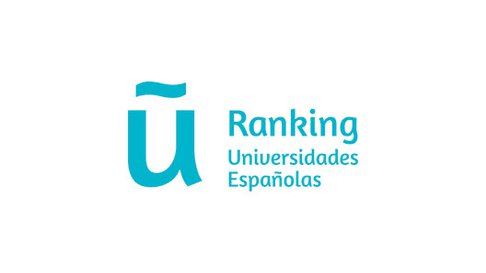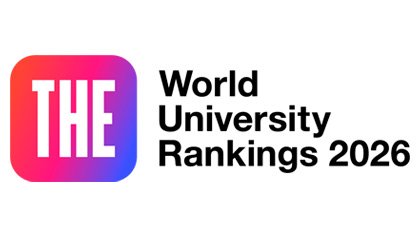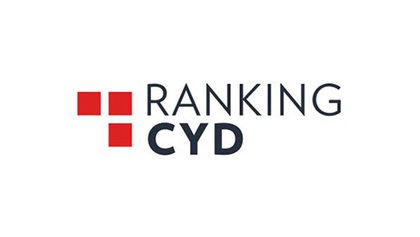Dentistry Degree
An undergraduate degree in Dentistry with 900 placement hours in university dental clinics.
The Bachelor’s Degree in Dentistry, an official five-year programme, is designed to train you as a dentist in both the public and private sectors. As a student of this degree at Universidad Europea de Madrid, you’ll have access to first class facilities, helping you to prepare for the world of work from day one.
We train highly competitive professionals in the field of Dentistry, preparing you to embark on a career as a qualified dentist. We provide you with the knowledge and skill set you need to successfully enter the labour market.
Official degree issued by Universidad Europea de Madrid
| Campus-based | Villaviciosa de Odón | 5 Years, 300 ECTS | Start: 14 sep. 2026 | School of Biomedical and Health Sciences - Madrid |
Accreditations and certifications
A study plan designed based on the needs of the professional sector
The Bachelor’s in Dentistry at UEM is characterised by innovative teaching methodologies. These include the integration of foundational subjects, advanced simulation, complex scenarios in our simulation booths that mimic real life, as well as simulators with haptic technology and virtual reality. While our high-quality pre-clinical training is vital, clinical training in real-world settings is crucial to developing future professionals. Our University has two clinics where our students will perform 900 clinical hours on real patients. Both of our clinics are equipped with the latest diagnostic and treatment technologies. Our faculty is made up of qualified and prestigious clinicians and researchers with deep connections to the dental industry. Students are guided by professor as they receive individualised training and feedback to help them understand their progress.
Study Plan structure
Course syllabus
PRIMER CURSO
| Materia | ECTS | Tipo | Idioma de impartición |
|---|---|---|---|
| Anatomy and Physiology of the human body I | 6 | BASICA | Inglés (en) |
| Cellular Biology and Human Genetics | 6 | BASICA | Inglés (en) |
| Epidemiology, Public Health and Applied Biostatistics | 6 | BASICA | Inglés (en) |
| Anthropology and History of Dentistry | 3 | BASICA | Inglés (en) |
| Documentation and Introduction to Research Methodology in Dentistry | 3 | BASICA | Inglés (en) |
| Modern language | 6 | BASICA | Inglés (en) |
| Anatomy and Physiology of the Human Body II | 6 | BASICA | Inglés (en) |
| Biochemistry | 6 | BASICA | Inglés (en) |
| General Microbiology and Immunology | 6 | OBLIGATORIA | Inglés (en) |
| Introduction to the Clinic | 6 | OBLIGATORIA | Inglés (en) |
| Psychology and Communication Skills | 6 | BASICA | Inglés (en) |
SEGUNDO CURSO
| Materia | ECTS | Tipo | Idioma de impartición |
|---|---|---|---|
| Biomaterials and Instrumentation | 6 | OBLIGATORIA | Inglés (en) |
| Head and Neck Anatomy | 6 | BASICA | Inglés (en) |
| APPLIED Surgical Medical Pathology I | 6 | OBLIGATORIA | Inglés (en) |
| General Semiology and Physiopathology I | 6 | OBLIGATORIA | Inglés (en) |
| Periodontics | 6 | OBLIGATORIA | Inglés (en) |
| General Pharmacology. Human Nutrition. Anesthesia and Reanimation | 6 | OBLIGATORIA | Inglés (en) |
| Physiology of the Stomatognathic System | 6 | BASICA | Inglés (en) |
| APPLIED Surgical Medical Pathology II | 6 | OBLIGATORIA | Inglés (en) |
| General Semiology and Physiopathology II | 6 | OBLIGATORIA | Inglés (en) |
| Diagnostics in Dentistry | 3 | OBLIGATORIA | Inglés (en) |
| Normal and Pathological Occlusion | 3 | OBLIGATORIA | Inglés (en) |
TERCER CURSO
| Materia | ECTS | Tipo | Idioma de impartición |
|---|---|---|---|
| Pediatric Dentistry I | 6 | OBLIGATORIA | Inglés (en) |
| Orthodontics I | 6 | OBLIGATORIA | Inglés (en) |
| ORAL Surgical Medical Pathology I | 6 | OBLIGATORIA | Inglés (en) |
| Stomatology Prosthesis I | 6 | OBLIGATORIA | Inglés (en) |
| Orthodontics II | 6 | OBLIGATORIA | Inglés (en) |
| ORAL Surgical Medical Pathology II | 6 | OBLIGATORIA | Inglés (en) |
| Stomatology Prosthesis II | 6 | OBLIGATORIA | Inglés (en) |
| Pediatric Dentistry II | 6 | OBLIGATORIA | Inglés (en) |
| Dental Therapy II | 6 | OBLIGATORIA | Inglés (en) |
| Dental Therapy I | 6 | OBLIGATORIA | Inglés (en) |
CUARTO CURSO
| Materia | ECTS | Tipo | Idioma de impartición |
|---|---|---|---|
| Stomatology Prosthesis III | 6 | OBLIGATORIA | Inglés (en) |
| Advanced Periodontics | 4 | OBLIGATORIA | Inglés (en) |
| ORAL Surgical Medical Pathology III | 4 | OBLIGATORIA | Inglés (en) |
| Introduction to Clinical Practice on Adults | 8 | OBLIGATORIA | Español (es) |
| Pediatric Dentistry III | 3 | OBLIGATORIA | Inglés (en) |
| Orthodontics III | 3 | OBLIGATORIA | Inglés (en) |
| Introduction to Clinical Practice on Children | 4 | OBLIGATORIA | Español (es) |
| Preventive Dentistry | 4 | OBLIGATORIA | Inglés (en) |
| ORAL Surgical Medical Pathology IV | 4 | OBLIGATORIA | Inglés (en) |
| Orthodontics IV | 3 | OBLIGATORIA | Inglés (en) |
| Pediatric Dentistry IV | 3 | OBLIGATORIA | Inglés (en) |
| Stomatology Prosthesis IV | 6 | OBLIGATORIA | Inglés (en) |
| Dental Therapy III | 4 | OBLIGATORIA | Inglés (en) |
| Dental Therapy IV | 4 | OBLIGATORIA | Inglés (en) |
QUINTO CURSO
| Materia | ECTS | Tipo | Idioma de impartición |
|---|---|---|---|
| Practicum | 24 | OBLIGATORIA | Español (es) |
| Community Dentistry and Oral Public Health | 6 | OBLIGATORIA | Inglés (en) |
| Integrated Clinic for Special Patients | 4 | OBLIGATORIA | Inglés (en) |
| Graduation Project | 6 | OBLIGATORIA | Inglés (en) |
| Professionalism | 4 | OBLIGATORIA | Inglés (en) |
| Radioprotection | 2 | OBLIGATORIA | Inglés (en) |
| Medical Emergencies in the Dental Clinic | 3 | OBLIGATORIA | Inglés (en) |
| Advanced Modern Language | 3 | OPTATIVA | Inglés (en) |
| Advanced Dental Implantology | 3 | OPTATIVA | Inglés (en) |
| University Activities | 6 | OPTATIVA | Inglés (en) |
| Ergonomics and Organization of the Dental Clinic | 3 | OPTATIVA | Inglés (en) |
| Occupational Risks | 3 | OPTATIVA | Inglés (en) |
| Anomalies and Malformations of Bucofacial | 3 | OPTATIVA | Español (es) |
New positions
280 places
Internship
On the Bachelor’s Degree in Dentistry, practical training is considered key to developing clinical and professional skills. For this reason, our work placements are carried out at the university's own dental clinics, equipped with the latest technology and designed to offer a learning environment that simulates real professional practice.
Through this practical approach, you’ll complete your training with a solid clinical foundation and be best prepared for the practice of dentistry.
Learn about our program
First year
In the first academic year, students will come into contact with basic sciences subjects that are fundamental to the training of all healthcare professionals. Our methodology is unique, with each subject completely integrated to the rest of the curriculum. Students will also be introduced to dental specialties through the Introduction to the Dental Clinic, where they will begin pre-clinical training.
Second academic year
In the second academic year, you will acquire knowledge in medical pathologies and study purely dental subjects, such as biomaterials, where you will learn the main materials and their use in the profession. In addition, during Diagnosis in Dentistry, you will learn the different radiological techniques and their application, and study Occlusion and Periodontics.
Third year
In the third academic year, you will acquire all the competencies of the different dental specialties, working in pre-clinical practices, advanced simulation environments and using virtual reality simulation and haptic technology. Learning in these settings will empower students to experience clinical training and real patient care.
Fourth year
In the fourth academic year, you will continue your theoretical training in the different areas of dentistry and will continue your clinical training by performing 300 practice hours on real patients. You will be supervised at all times by your professor to ensure the correct clinical care of patients.
Fifth year
In the fifth academic year, you will perform 600 clinical hours on real patients, carrying out all kinds of dental treatments. In this year, you will also carry out your final project, where you will apply and develop the training you have received to generate a personal project under supervision.
Employability
Career opportunities. Bachelor’s in Dentistry.
After completing your degree in dentistry, it’ll be time to take the next step and enter the world of work. According to current legislation, the dental profession and practice, governed by Article 12.9 of Royal Decree 1393/2007 on the organisation of official university education, requires the possession of an official bachelor's degree. This qualification must be obtained in line with the conditions set by the Government in the Council of Ministers’ Resolution of 8 February 2008, published in the Official State Gazette on the 27th of the same month. The Bachelor’s Degree in Dentistry qualifies students to practise a single professional profile: that of a dentist, who can focus their career on areas such as teaching, research, management or health care, both in the public and private sectors, whether self-employed or working for others.
Health area
- Free exercise of the profession, that is, being a self-employed dentist, setting up your own dental clinic, or working alongside other autonomous workers.
- Primary and dependent hospital care providing dental services of the Regional Health System, private clinics and hospitals, health insurance companies, among others.
- Pharmaceutical and dental industry.
- Military dentistry.
Education field
- Prevention campaigns in schools, high school and university education.
- University and CFGS teacher
Other areas
- Correctional institutions
- Legal and forensic dentistry
- NGO work
Admissions
Start your future at Universidad Europea
You can become a student at Universidad Europea in three easy steps.
1
Admission exams
Start your admission process by calling +34 918257503 or request information and our advisors will contact you.
2
Place reservation
Once you have been admitted, secure your place by paying the reservation fee.
3
Enrollment
Submit the required documents to formalise your enrollment.
Scholarships and financial aid
We want to help you. If you want to study at Universidad Europea, you will have at your disposal a wide selection of own and official scholarships.
Credit recognition and transfers
You don’t have to stick with something you don’t like. That’s why we’ve designed specific plans for credit recognition and transfers.
Request your online credit recognition review, transfer your academic file and start studying at Universidad Europea.
Profile for prospective students and how to access this degree
Dental students should be oriented to the field of healthcare sciences. It is important that you understand the importance of the prevention, diagnosis and treatment of oral diseases and their impact on overall health. You must be highly aware of ethical values, and maintain a high level of responsibility as well as the ability to communicate with patients and collaborate with other healthcare professionals.
It is important that you have a basic knowledge of chemistry and biology, manual skills, visual acuity and psychomotor coordination to enable you to learn the techniques needed to offer patients high-quality dental care. You must also have a predisposition to personal interactions in order to communicate effectively with patients and other professionals.
It is important that you have a critical mindset that allows you to analyse your own work and the reasons for error and, on the other hand, the commercial value of new techniques and devices in such a way as to differentiate between those that are useful and superfluous.
Entrance exams:
- High school diploma and university entrance exam.
- Vocational Training, Advanced Vocational Training or FP2. Academic certificates may be requested as proof.
- If over the age of 25 and 45 years old, proof of passing the entrance exams.
- University studies initiated or completed with the corresponding accreditation.
Admissions process
Due to the limited number of places and high demand, we have to use a specific selection process to fairly identify our future students’ potential and motivation for academic and professional excellence.
Admission to the Degree in Dentistry at the Universidad Europea de Madrid is subject to places available and compliance with the established legal requirements. The selection criteria are as follows:
The tests can be taken in person, by telephone or online. The selected candidate files are checked by the Vice-Dean of the degree programme, and candidates who are accepted will receive confirmation of their place on the programme.
Selection criteria:
- Academic record (80%).
- UE Test, Motivational written interview (20%).
If there is a tie between candidates, the motivational interview will be taken into account.
Open days
We know that now is an important moment to progress in your professional future. That is why we open our virtual doors to you and invite you to join us. We want you to meet the director of your programme and solve all possible doubts you have. You’ll also discover what makes our students and our online methodology unique.
19 February
Faculty
The faculty on this master's has 60,8% of doctors
CV of degree faculty
Click here
Excellence endorsed by the best
Frequently Asked Questions
How many years is a dentistry degree?
The dentistry degree at Universidad Europea is a five-year programme that will equip you with the knowledge and skills to enjoy a career in the field of oral health. The degree in dentistry has a total of 300 ECTS, with some subjects compulsory and other elective. Over the course of the degree, students will cover a range of topics, enabling them to choose which area of dentistry they would potentially like to specialise in once they complete their studies. Examples of subjects include:
- Anthropology and History of Dentistry
- General Microbiology and Immunology
- Diagnostics in Dentistry
- Orthodontics
- Pediatric Dentistry
What are the requirements to study dentistry?
There are a number of access routes to the degree in Dentistry. These include:
- Bachelor's degree.
- UNED credential. Certain foreign bachelor's degrees or European bachelor's degree.
- International bachelor's degree (IB).
- Access for over 25 years of age.
- Access for over 45 years old.
- Recognition of studies
Is dentistry a good career for the future?
Dentistry is a good career for the future for many reasons. Some of the main reasons why people choose to study a dentistry dentree are:
- It produces personal gratification
- It allows you to help patients recover their health
- It is well paid
- There is little unemployment
- It is a profession valued by society
- It allows you to undertake and develop your own business
Where can I study dentistry?
You can study your degree in dentistry at Universidad Europea in Madrid. We are one of the leading private universities in Spain, and have more than 25 years of experience in training young people to develop the skills and abilities necessary to become leaders in whatever sector they choose.
If you choose to study your bsc in dentistry at Universidead Europea, you will follow an academic model based on experiential learning. That means from day one you will be able to take part in real cases in clinical settings. Throughout your programme you will complete internships and work placements at dental pratices across Madrid. In addition, you will learn at our similulated hospital on campus, allowing to to further develop you dentistry skills.






